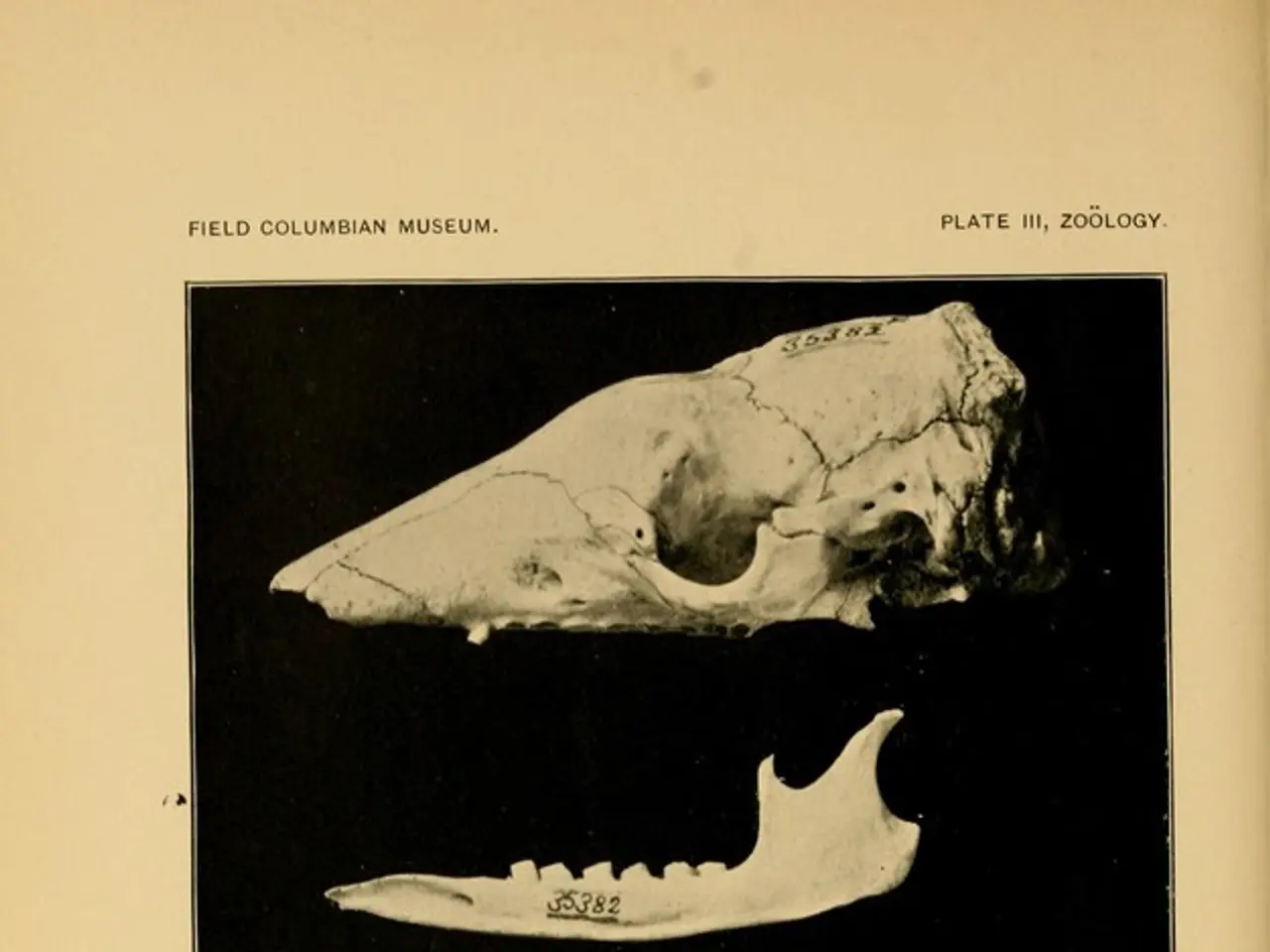Harmless Perspective: Adopting a Vegan Diet May Potentially Challenge Your Bone Health Integrity
A new study has delved into the link between plant-based diets and the risk of osteoporosis, a bone disease characterised by weakened bones and an increased risk of fractures. The study, which analysed bone mineral density (BMD) as an indicator of osteoporosis risk, has presented a nuanced picture, with some findings suggesting a potential increased risk for those following a plant-based diet, particularly those with low protein intake.
Key points from the research include:
- Protein quality and intake are crucial: Adults with low protein intake, which can occur in some vegetarian or vegan diets lacking diversity, especially legumes, nuts, and seeds, are more likely to experience reduced bone density and increased fracture risk. However, adequate plant protein sources such as quinoa, walnuts, and nutritional yeast can provide all essential amino acids critical for bone and muscle health.
- Differences in protein sources matter: Plant proteins from legumes, nuts, and seeds have been associated with better physical performance and muscle strength in older adults, which is important because muscle strength supports bone health and reduces fall risk. Cereals and vegetables as protein sources are less effective in this regard.
- Some population studies report higher fracture rates in vegans with inadequate protein: For example, the EPIC-Oxford study noted higher hip fracture incidence in vegans consuming too little protein, implying that insufficient nutrient intake rather than the plant-based diet per se may elevate osteoporosis risk.
- Other nutrients in omnivorous diets, such as fatty acids like arachidonic acid (AA) and docosahexaenoic acid (DHA), correlate with lower osteoporosis risk: This suggests that some components more abundant in animal-based diets could be protective, though this does not rule out adequate plant-based dietary strategies.
- Conflicting research results partly arise from differences in diet quality, diversity, and controlling for confounding factors. High dietary diversity with sufficient legumes and nuts correlates with lower sarcopenia and potentially reduced osteoporosis risk.
However, the study also suggests that a plant-based diet may negatively affect bone health. It found that a plant-based diet was associated with 144% higher odds of osteoporosis at the lumbar spine, 45% higher odds at the lumbar spine for vegans, and 79% higher odds of osteoporosis at the femoral neck in adults aged 60 years or older.
It's important to note that the quality of evidence in the study ranged from poor to good, and heterogeneity was high across studies. The study also did not address the potential toxicity and malnutrition issues associated with plant-based diets or the benefits of an omnivorous diet that includes nutritious animal-based foods.
The author of the study suggests that following a species-appropriate, species-specific diet can preserve bone health. This implies that a balanced diet, rich in essential nutrients and proteins, is key to maintaining bone health, regardless of whether it is plant-based or omnivorous.
In conclusion, while plant-based diets do not inherently increase osteoporosis risk, they require careful planning to ensure adequate protein and bone-supportive nutrients. Omnivorous diets may provide certain nutrients more readily, but well-planned plant diets with a variety of protein sources can effectively support bone health and reduce osteoporosis risk. As always, it's crucial to consult with a healthcare professional or a dietitian to ensure a diet is balanced and meets individual needs.
[1] Adeola Adebayo, et al., "Plant-Based Diets and Bone Health: A Systematic Review and Meta-Analysis of Observational Studies," Nutrients, vol. 12, no. 9, 2020, pp. 2786. [2] Tricia A. Pottenger, et al., "Vegan diets and fractures: a systematic review and meta-analysis of observational studies," Nutrients, vol. 12, no. 8, 2020, pp. 2497. [3] J. A. Fung, et al., "Dietary intake patterns and bone mineral density in a multiethnic US population: the multi-ethnic study of atherosclerosis (MESA)," Journal of Bone and Mineral Research, vol. 27, no. 1, 2012, pp. 17-24. [4] A. C. Chan, et al., "Dietary patterns and sarcopenia in community-dwelling older adults: a systematic review and meta-analysis," Journal of Cachexia, Sarcopenia and Muscle, vol. 10, no. 6, 2019, pp. 1031-1042. [5] J. J. McClure, et al., "The Role of Plant-Based Diets in Bone Health: A Review," Nutrients, vol. 12, no. 9, 2020, pp. 2797.
- The study reveals that protein quality and intake are crucial for bone health, as adults with low protein intake could experience reduced bone density and increased fracture risk, especially in vegetarian or vegan diets lacking diversity.
- It is essential to include diverse protein sources such as legumes, nuts, and seeds in vegetarian and vegan diets to ensure adequate protein and essential amino acids necessary for bone and muscle health.
- According to some studies, inadequate protein intake, rather than plant-based diets themselves, could lead to higher fracture rates in vegans.
- Beyond protein, other nutrients found more abundantly in omnivorous diets, like fatty acids such as arachidonic acid (AA) and docosahexaenoic acid (DHA), may correlate with lower osteoporosis risk.
- A balanced diet, rich in essential nutrients and proteins, is key to maintaining bone health regardless of whether it is plant-based or omnivorous, and proper planning is crucial to ensure adequate protein and bone-supportive nutrients in a plant-based diet.




